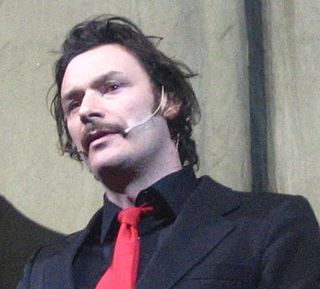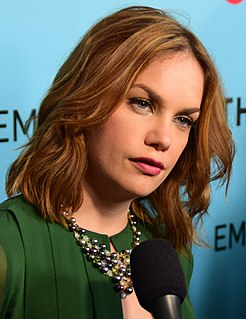A Quote by William Eggleston
I quite frequently don't look through the camera, which is very close to being blind.
Related Quotes
The first time I worked with colors was by making these mosaics of Pantone swatches. They end up being very large pictures, and I photographed with a very large camera - an 8x10 camera. So you can see the surface of every single swatch - like in this picture of Chuck Close. And you have to walk very far to be able to see it.
I don't paint, and I can't draw, but I see things, I think, quite well, and I love being able to freeze things with the camera, particularly the children. Then I discovered with the camera that you can tell a whole story with just freezing a moment in reality. I find it a very good way, a very satisfying feeling.
It has always seemed to me that if one falls in love with any gentleman one becomes instantly blind to his faults.But I am not blind to your faults, and I do not think that everything you do or say is right! Only—Is it being—not very comfortable—and cross—and not quite happy, when you aren’t there?” “That, my darling,” said his lordship,taking her ruthlessly into his arms,“is exactly what it s!” “Oh—!” Frederica gasped, as she emerged from an embrace which threatened to suffocate her. “Now I know! I am in love!
I'm very heavily involved in the editorial post-production process, and the camera - it's just such a big part of my storytelling language. I like creating the tension; I like creating the emotion through the movement of my camera, or the lack of movement through my camera, depending on what fits the scene best.
Look what you've already come through! Don't deny it. You've already come through some things, which are very painful. If you've been alive until you're 35, you have gone through some pain. It cost you something. And you've come through it. So at least look at that. And have a sense to look at yourself and say, "Well, wait a minute. I'm stronger than I thought I was."
The collective psychology is something very close to being sacred - we can do it but we don't do it. We should understand that the Holocaust in the European conscience is reaching a point which is very close to what is sacred for people in the Southern countries, whether they are Muslims or not. Because of that we need to try to have intellectual empathy.




































